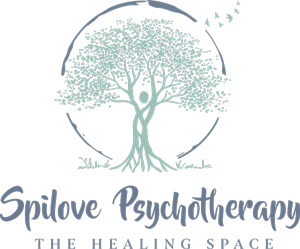Poly & Kink Affirming Therapy in Philadelphia
First, let’s ask ourselves, ‘what does kink and polyamory actually mean?’.
The term kink refers to diverse sexual preferences that often extend beyond just the LGBTQ+ community. For example, BDSM historically has meant bondage, dominance, and sadomasochism that’s usually associated and practiced during sex. It’s important to note that kink extends beyond BDSM and could encompass bondage and discipline, domination and submission, and sadism and masochism. The term polyamory (poly) refers to having open intimate (includes sexual) and or romantic relationships with more than one person at a time. Polyamory is often used as an umbrella term that reflects a variation of other consensual non-monogamous relationships.
Finding a Poly & Kink Affirming Therapist
Kink and poly aware therapists will have an extensive amount of knowledge and ongoing training around the complexity and diverse ways in which people choose to explore their sexuality or gender.
A kink and poly aware therapist will be accepting and respect this part of your life for what it is. This particular area of your life should be embraced without fear of judgment, embarrassment, or shame that is often associated with kink and poly communities. Kink and poly affirmative therapy will never try to “fix”, “change”, or “denounce” your sexual desires, curiosities, or fantasies which includes exploring a variation of relationship structures that extends beyond monogamy. Instead, a kink and poly affirmative therapist should explore with you how to integrate kink, polyamory, or consensual non-monogamy in a way that feels safe and to address any potential shame or guilt that might be associated with kink and poly culture. These feelings can help to address any internal or external conflict that impacts your relationship with self and others and it’s the responsibility of a kink and poly affirmative therapist to support you in unpacking those feelings.
A kink and poly affirmative therapist should:
Never assume that the issue you’re seeking help or support with is caused by or related to your kink or poly orientation.
Never make assumptions about your treatment goals. You are and should be treated as the expert of your sexual self.
Never try to “cure” or persuade you away from your desires, curiosities, or fantasies.
Never assume that you are experiencing abuse, especially as it correlates with BDSM relationships
Never assume that you are aware of all terms associated with kink and poly culture. A therapist should help you navigate and explore terms that empower you to negotiate and become aware of agreements and boundaries that best serve you and your partners involved.
Therapy can be challenging, especially when it revolves around communicating and discussing your sexual desires, curiosities, or fantasies in a safe, healthy, and consensual way. An affirmative kink and poly space could be the perfect way to explore parts of yourself!
Contact us today for a FREE 15-minute phone consultation to speak with one of our poly & kink affirming therapists in Philadelphia, Bryn Mawr or for Online Therapy.
About the author:
Ken is a graduate of Columbia University with their Master’s in Advanced Clinical Social Work. They have been an activist and community organizer for marginalized communities since the age of fourteen. They began by advocating for healthy fresh affordable foods for low-income communities. That set the foundation for Ken’s advocacy work and has led them to do work specifically revolving around LGBTQ+ equity for youth and young adults, specifically LGBTQ+ and BIPOC homeless youth.
Ken is keen on uplifting and creating brave spaces for clients to truly be their authentic selves. Ken values the importance of finding and reclaiming one’s voice to feel empowered while also healing during the therapeutic process. They use both Narrative Therapy and Cognitive Behavioral Therapy (CBT) when working in solidarity with clients. Ken is passionate about working with LGBTQ+ adolescents and young adults.
In addition, Ken believes in the power of the arts and integrating that in therapy whether it be in regard to poetry, theater, painting, or music. Ken believes in the framework of listening, uplifting, supporting, and celebrating who you are as you navigate the world and strengthen your understanding of your emotions, mind, and body.





